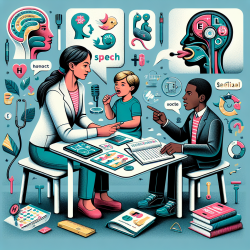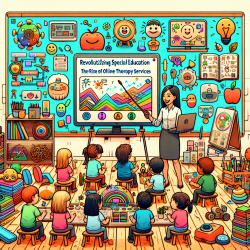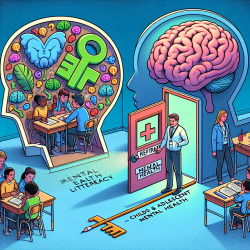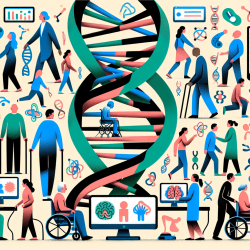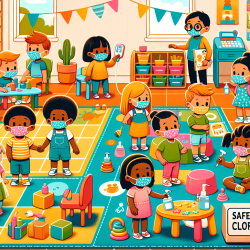Understanding the nuances of how children with language impairments interact with adults is crucial for speech therapists and educators. A pivotal study by Carpenter and Olswang (1979) sheds light on the influence of parent-child versus clinician-child interactions on the language development of young children with language impairments. This blog aims to unpack the findings of this study and explore practical applications for practitioners.
The study's core inquiry was whether the familiarity of the adult elicitor—be it the child's parent or an unfamiliar clinician—impacts the expressiveness and complexity of language used by the child. The results were telling: children produced a greater number of utterances when interacting with their parents compared to clinicians, though no significant differences were noted in the lexical, grammatical, or semantic quality of the language produced under both conditions.
For speech therapists and educators, these findings underscore the importance of incorporating or mimicking parental interaction styles within therapy sessions. Here are several strategies to consider:
- Embrace Familiarity: Integrate familiar objects or topics of conversation that mirror the child's home environment to encourage more spontaneous language.
- Engage in Parallel Play: Mimic the parent-child interaction model by engaging in parallel play activities that promote language use without direct prompting or questioning.
- Encourage Parental Involvement: Whenever possible, involve parents in the therapy process, either through direct participation in sessions or by coaching them on strategies to use at home.
- Focus on Quality and Quantity: While the study suggests that the quantity of language might increase with familiar adults, therapists should also focus on strategies that enhance the quality of the child's language in terms of complexity and diversity of vocabulary.
- Utilize Video Recordings: Record sessions where the child interacts with parents and clinicians separately. Analyzing these can provide insights into how different interactions influence language use.
Furthermore, this research prompts speech therapists to consider the potential benefits of further research into the dynamics of adult-child interactions in language development. It highlights the importance of tailoring speech therapy techniques to not only mimic the familiarity and comfort of parent-child interactions but also to explore innovative methods to engage children in meaningful and linguistically rich exchanges.
Understanding the unique influence of parent versus clinician interactions opens avenues for enhancing therapeutic approaches and outcomes for children with language impairments. By integrating the essence of familiar interactions into therapy sessions and encouraging parental involvement, therapists can create a more conducive environment for language development.
To delve deeper into the study's methodology and findings, please follow this link: The Influence of Parent-Child Versus Clinician-Child Interactions on the Language of Young Language-Impaired Children.
